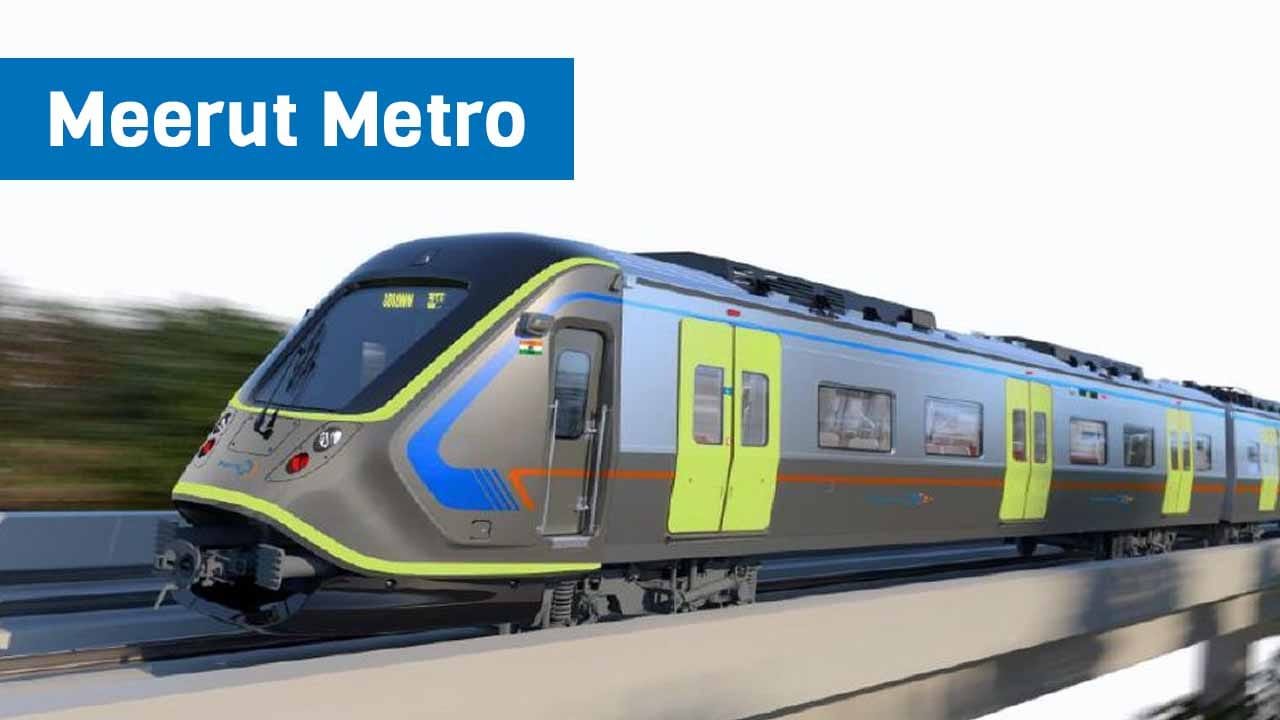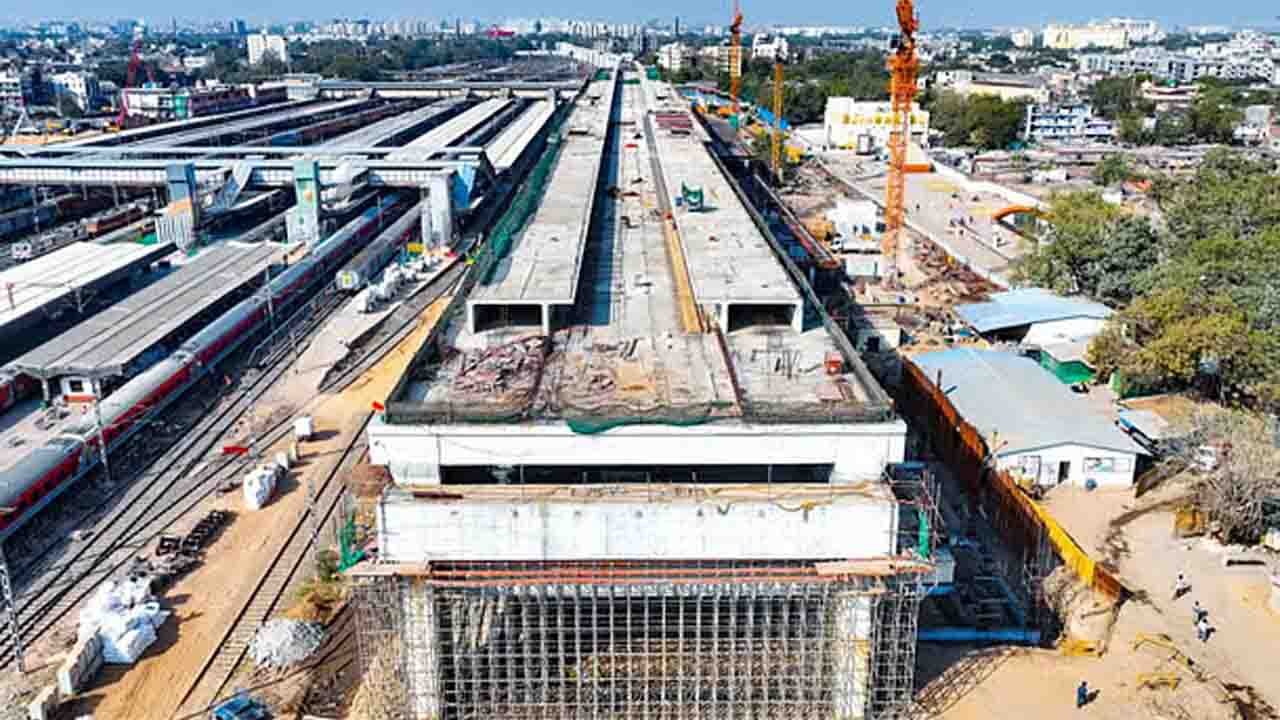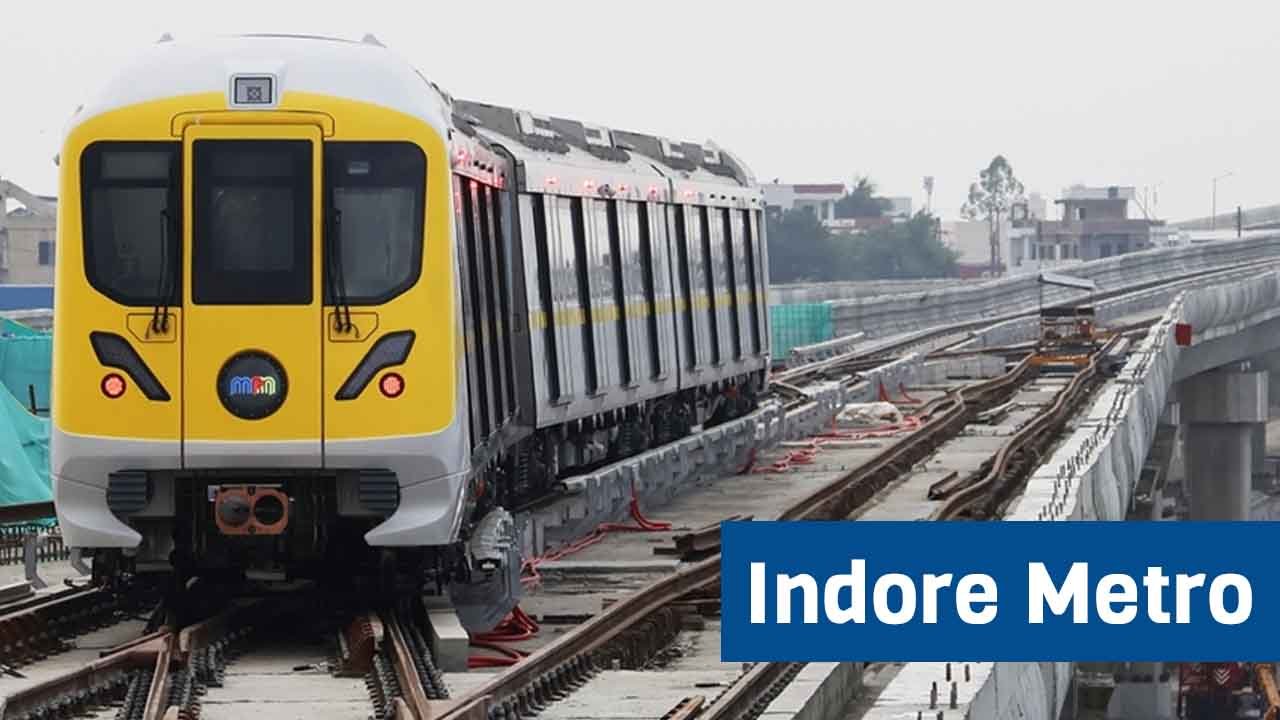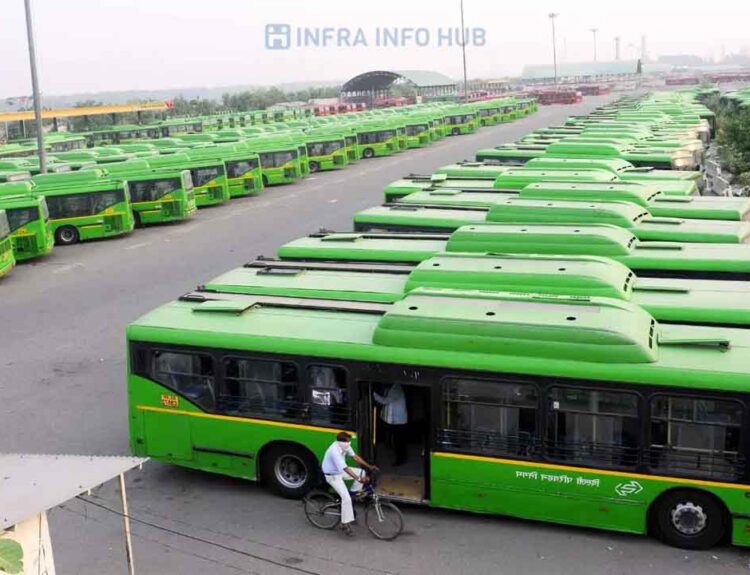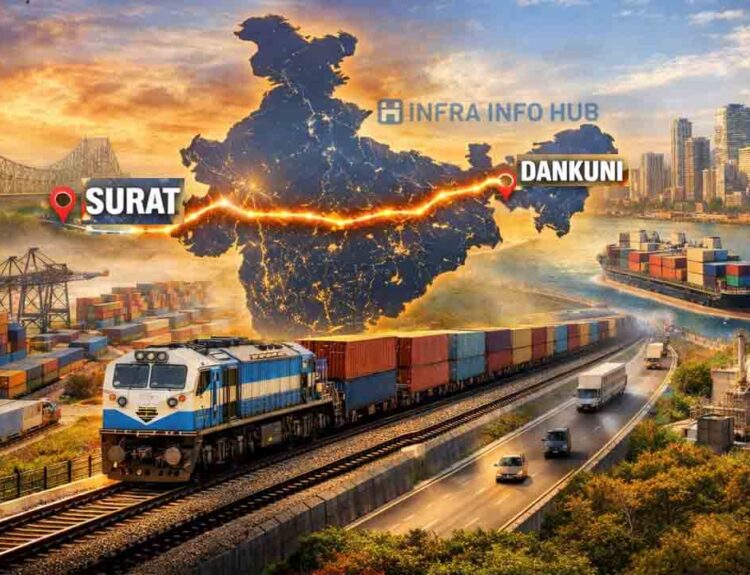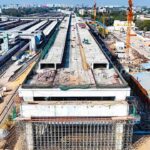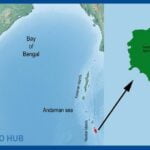The Meerut Metro is strategically designed to operate along the Delhi-Ghaziabad-Meerut Rapid Transit System (RRTS) corridor. This unique model will provide faster, higher-capacity, and more comfortable commuting options, making travel in the city more convenient and time-consuming. The project’s first phase focuses on connecting densely populated areas and important centers in Meerut.
Table of Contents
Meerut Metro Overview
- Length: 38.6 km
- Stations: 25 (Line 1-13, Line 2-12)
- Lines: 2
- Track gauge:1,435 mm (4 ft 8+1⁄2 in) standard gauge
- Speed:80 km/h
- Type:Elevated & Underground
- Cost: ₹11,540 crore
- Completion Time: June 2025
About Meerut Metro
The Meerut Metro is an under-construction rapid transit system that will serve the city of Meerut in Uttar Pradesh, India. It is being built in two phases. The first line will cover a distance of 23.6 km (14.7 mi), with 13 stations from Modipuram to Meerut South.
The metro will become India’s first rapid transit system to merge directly with a regional transit system. It will have nine elevated stations, three underground stations, one at-grade station at Modipuram, and four stations integrated with the Delhi–Meerut Regional Rapid Transit System on a corridor.
In the second phase, the second line will cover a distance of 15 km (9.3 mi) from Shradhapuri Phase-2 to Jagrati Vihar. The line will have 12 stations, of which seven will be elevated and five underground, covering a total distance of 38.6 km (24.0 mi). The metro will run at a speed of 120 km/h (75 mph), making it the fastest metro in India.
Meerut Metro Route
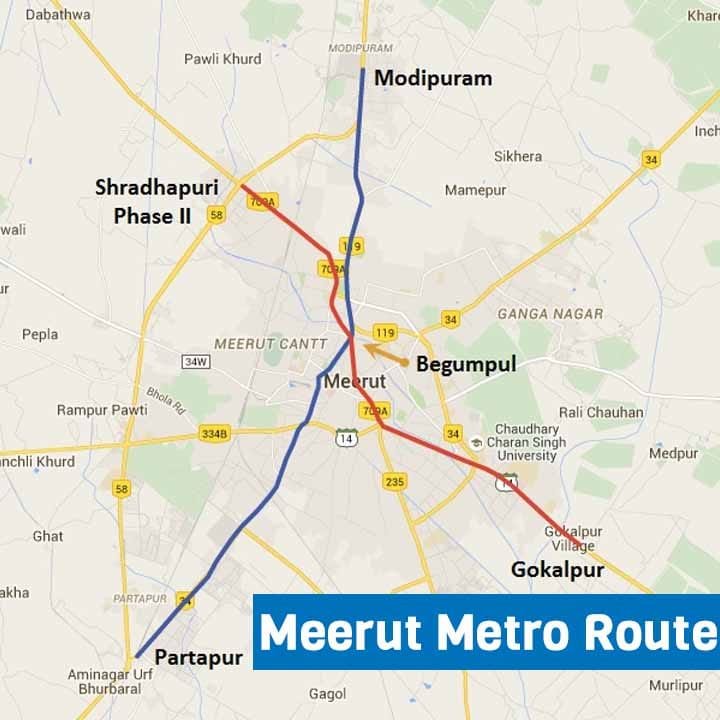
The metro will be built in two parts, covering a distance of 38.6 km (24.0 mi). The first line running along the RRTS is being built in the first phase. The details of the lines are as follows:
Phase-1
Line 1: The distance from Meerut South to Modipuram is 23.6 km (14.7 mi); it is 14.8 km (9.2 mi) elevated, 8.8 km (5.5 mi) underground, and has a depot station at Modipuram. The line will have 13 stations, of which nine will be elevated, three underground, and one at-grade station at Modipuram Depot. It will run on the same corridor as the RRTS.
Phase-2
Line 2: Jagriti Vihar is 15 km (9.3 mi) from Shraddhapuri Phase II, 10.7 km (6.6 mi) elevated, and 4.3 km (2.7 mi) underground. There will be twelve stations on this line, seven elevated and five underground. It is currently awaiting approval of the new Detailed Project Report (DPIR) tender.
Meerut Metro Stations
Meerut Metro will have 25 stations, 13 on the first line and 12 on the second line. Apart from this, there will also be interchange points with the Delhi-Meerut Regional Rapid Transit System (RRTS) at Meerut South, Shatabdi Nagar, Begumpul, and Modipuram stations. The following are the initial stations of the metro:
Meerut Metro Line-1 Stations
- Meerut South
- Partapur
- Rithani
- Shatabdi Nagar
- Brahmapuri
- Meerut Central
- Bhaisali
- Begum Pul
- MES Colony
- Daurli
- Meerut North
- Modipuram
- Modipuram Depot
Meerut Metro Line-2 Stations
- Sharadhapuri Phase 2
- Kanker Khera
- Meerut Cantt. Railway Station
- Rajban Bazar
- Begumpul
- Baccha Park
- Shahpeer Gate
- Hapur Adda Chauraha
- Gandhi Ashram
- Mangal Pandey Nagar
- Tej Grahi
- Medical College
- Jagruti Extension
Meerut Metro Progress
On 8 March 2019, Prime Minister Narendra Modi laid the foundation stone for the RRTS, and construction of both projects began in June 2019. The RRTS is also expected to be completed by June 2025, with the inauguration of the entire route. It is being built at a cost of ₹11,540 crore (US$1.4 billion), and its merger with the RRTS will see the metro and trains being owned and operated by the NCRTC.
Meerut Metro Specifications
- Multi-modal transport integration: All stations will be integrated with railway stations, inter-state bus terminals, cabs, and parking spaces to facilitate skywalks, elevated walkways, and entry/exit points. The metro will work in parallel with a regional transit system in India.
- Security: All stations will be under the strict surveillance of security staff and CCTVs. Platforms will also be fitted with Platform Screen Doors (PSD), which will keep passengers safe.
- Sustainability: All stations will use eco-friendly measures to generate electricity, dispose of waste, and conserve water, such as solar panels on rooftops, dustbins, water and sewage treatment systems, green spaces on the premises of stations, and adequate cleaning of the entire area, similar to RRTS stations. The establishment of the metro will ensure sustainability, as it will bring about a change in the model of public transport in the region.

